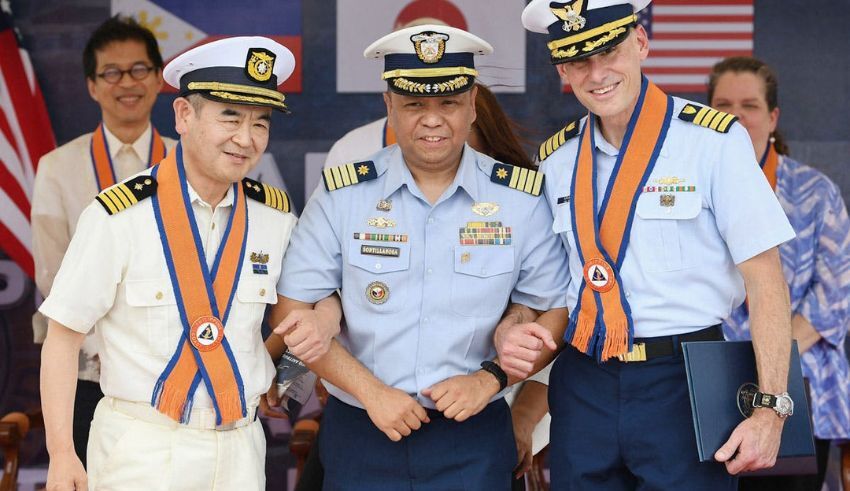
As the Association of Southeast Asian Nations (ASEAN) fails to unify in addressing regional concerns, the Philippines is looking to Japan and the United States for assistance in boosting maritime security. This article examines the relevance of this strategic strategy, Japan’s and the United States’ roles in boosting maritime security, and the ramifications for the Philippines and the larger Southeast Asian area.
The Philippines has a variety of maritime security issues, including territorial disputes and pirate threats, due to its wide coastline and vital position. Recognizing the necessity of protecting its waterways, the government is aggressively seeking collaboration with like-minded states to strengthen its maritime security capabilities. The Philippines hopes to improve its maritime surveillance, patrol, and response capabilities by collaborating with Japan and the United States, both of which are recognized for their experience and resources in this sector. This will contribute to regional stability.
Japan’s Role in Maritime Security
Japan has been a strong advocate for maritime security in the Asia-Pacific area. Japan is well-positioned to assist the Philippines in bolstering its maritime security due to its sophisticated naval capabilities and commitment to a rules-based international order. Collaboration between the two countries may include capacity-building projects, joint exercises, information sharing, and technology transfer, with the goal of eventually increasing marine domain awareness and supporting a safe and stable maritime environment.
The Philippines has long-standing military relations with the US, making it an obvious partner in improving maritime security. The presence of the United States in the area, via its military forces and alliances, has a substantial deterrent impact and reflects the country’s commitment to sustaining peace and security. While soliciting assistance from Japan and the United States demonstrates the Philippines’ proactive approach to maritime security, it also illustrates the difficulties and divergent interests within ASEAN when it comes to tackling regional security concerns.
Although ASEAN has generally prioritized a unified front in handling regional problems, such as maritime security concerns, recent events have highlighted the difficulties in obtaining agreement among member members. The Philippines’ choice to explore alliances outside of ASEAN reflects the reality of the regional bloc’s different opinions and objectives. Nonetheless, the Philippines remains dedicated to ASEAN-centered efforts and is looking for ways to collaborate within the framework of the organization.
Keep Reading
Implications for the Philippines and the Region
The Philippines’ involvement in maritime security with Japan and the United States has various ramifications. For starters, it demonstrates the country’s willingness to improve its military capabilities and preserve its marine interests. Second, it emphasizes the significance of collaboration among like-minded states in solving common security concerns. Finally, it may push other ASEAN member nations to explore collaborations outside of the union, expanding regional security dynamics even more.
The Philippines’ decision to seek assistance from Japan and the US in improving maritime security illustrates the country’s proactive approach to resolving regional concerns. The Philippines hopes to boost its maritime security capabilities and contribute to regional stability by harnessing the knowledge and resources of Japan and the United States. While this strategy departs from the usual ASEAN unified front, it exposes the regional bloc’s difficulties. The Philippines’ strategic relationships highlight the necessity of collaboration among like-minded states and the need for adaptable measures to protect Southeast Asia’s maritime interests.




